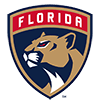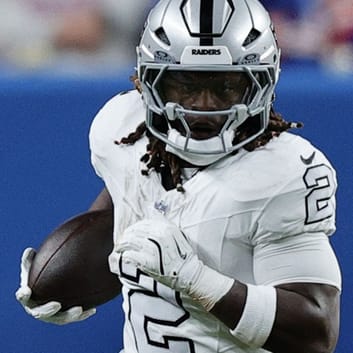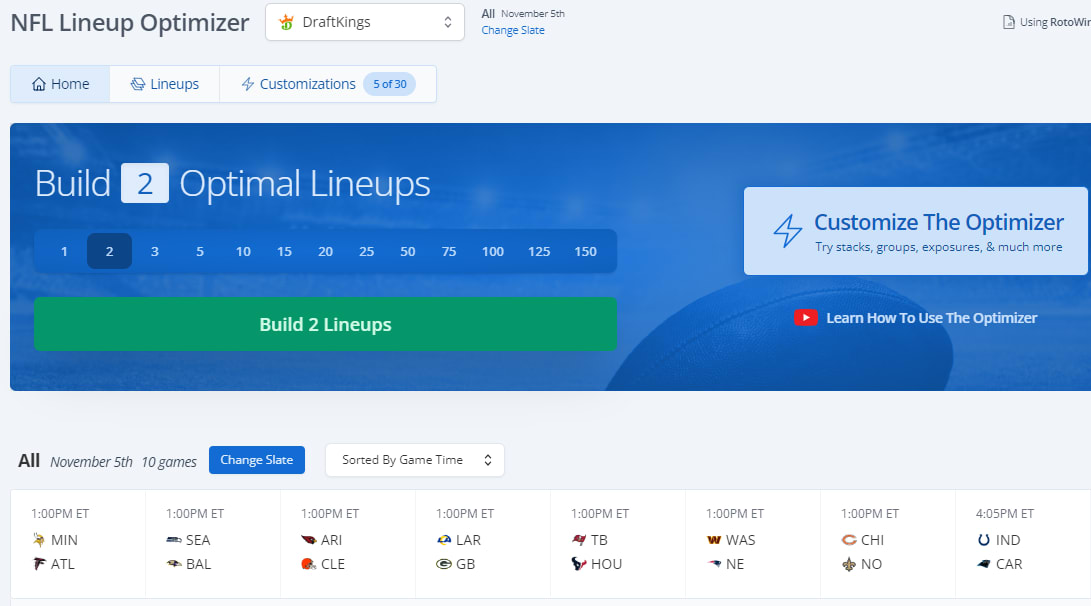As you know, the primary discussion in this column is about various wide receivers and how they are involved in their team's offenses. However, as I was writing my DFS column this week, I started to notice a pretty obvious trend: many running backs are functioning like primary pass catchers for their offenses. With that angle in mind, we are going to analyze the pass-catching abilities and involvement of 10 different RBs and what that means for their value, and also the value of all RBs going forward.
C-Mac has been the biggest example of this revolution in fantasy football. We all know that passing attempts league-wide have been increasing ever since the rule changes started in 2010, but McCaffrey's designation as a running back while having a 25 percent target share of the Panthers' offense and only 45 rushing attempts for 2.5 yards per carry signals a dramatic shift. He is lining up in the backfield often, and the team is at least trying to let him run the ball, but he is clearly most effective as a receiver. Lucky for those who took a shot on him as his ADP rose, he has looked up to the task as a wide receiver.
Shady leading the Bills in total target share is actually not as surprising as some of the other RBs who have been involved in the passing game. McCoy has always been a great pass catcher out of the backfield, but
As you know, the primary discussion in this column is about various wide receivers and how they are involved in their team's offenses. However, as I was writing my DFS column this week, I started to notice a pretty obvious trend: many running backs are functioning like primary pass catchers for their offenses. With that angle in mind, we are going to analyze the pass-catching abilities and involvement of 10 different RBs and what that means for their value, and also the value of all RBs going forward.
C-Mac has been the biggest example of this revolution in fantasy football. We all know that passing attempts league-wide have been increasing ever since the rule changes started in 2010, but McCaffrey's designation as a running back while having a 25 percent target share of the Panthers' offense and only 45 rushing attempts for 2.5 yards per carry signals a dramatic shift. He is lining up in the backfield often, and the team is at least trying to let him run the ball, but he is clearly most effective as a receiver. Lucky for those who took a shot on him as his ADP rose, he has looked up to the task as a wide receiver.
Shady leading the Bills in total target share is actually not as surprising as some of the other RBs who have been involved in the passing game. McCoy has always been a great pass catcher out of the backfield, but his role has become even more important as the offensive weapons in Buffalo either leave town or get injured. Sammy Watkins, Jordan Matthews and Charles Clay's absences have all turned this into an offense even more Shady-centric. If we had been able to project this pass catching volume coming into the year, Shady would have been a top-four pick, coming in easily after Ezekiel Elliott (pre-suspension concerns).
While Alvin Kamara has a higher total share of the Saints' passing offense, sitting at 18 percent, it is more interesting to me that Ingram holds a 14 percent target share while also being their lead running back and top red-zone threat. For many years, Ingram has been unable to truly hit the fantasy ceiling that should have been there for a Saints RB because there were too many mouths to feed. Now, with so many former Saints skill position players out of town, underperforming, or injured, Ingram has handled over 30 percent of the team's total plays in back-to-back weeks.
I am grouping these two together because their values are intrinsically linked. Neither of them have been efficient RUNNING backs, but they have both been above average pass catchers. Maybe their individual knee injuries sapped them of some acceleration, which doesn't matter as much when they have a few yards of space as a receiver, or maybe they were just overrated as runners to begin with. Now that they handle 15 percent or more of their team's total targets, though, it doesn't matter. Any running back who can get 5-8 targets per game while also having some goal-line work and generating points running the ball has the potential to be a top-five running back. That is just the way fantasy scoring works now, and these two are great examples of that changing tide. Being a "workhorse" RB in 2017 means being a good receiver as well, in a way that it did not used to.
The Ravens offense is truly putrid and Allen has contributed to that, no denying it. He is averaging 3.7 yards per carry and only 4.4 yards per reception, but he also has 39 targets in seven games, and in one of those he barely played. I am aware that he has not been very effective and the offense hasn't either, but I do think that the perception is that he is wholly without value, which simply is not true. For this year and going forward, I think he is a solid trade target in redraft and dynasty formats because all of the other Ravens RBs are hurt, old, or bad. Even when Danny Woodhead does return, there seems to be no guarantee that he will be the Woodhead that we remember.
When Dion Lewis returned to a more prominent role in the Patriots offense, it seemed to be the logical conclusion that White would no longer be involved as heavily, but that has not been the case. Lewis is the better player, more agile, shifty, and aggressive in the right ways. However, White has been one of the key cogs this year for Brady and the Pats as they have had little to no continuity. Danny Amendola, Rob Gronkowski, and Rex Burkhead have all missed time while the team integrates two new wide receivers into the system. White is the one constant, and I think his role will stay the same the whole season.
I am not so much interested in Duke Johnson as a fantasy entity (he already has had his nice stretch of fantasy usable games) as I think that the Browns' rotating QB carnival cannot be helpful for skill position players. However, much like McCaffrey, he is great evidence of this shift we are seeing in the NFL. There is more value in players who can line up at multiple positions, who can play in the slot, in the backfield or out wide. Johnson can handle a goal-line carry about as well as he can run a post route and while his specific situation sucks, he is a reminder that this is the trend the NFL is going for.
Anyone who tells you on a week to week basis if they have any idea how well Thompson will do is an absolute liar. He is scoring touchdowns and accruing fantasy points on such a limited amount of touches that it is hard to truly say just how valuable he is. While I have liked Thompson since he came out of Florida State and have him on many of my seasonal teams, I would absolutely be willing to sell him for someone offering me a more stable WR2 (for example, I would love to take Chris Hogan for Thompson in any league). Players like Thompson are very valuable to their teams and to their fantasy owners, but they don't profile as true RB1s because they don't handle a large enough percentage of their team's total offense.
Before TyMont got hurt, he legitimately looked like the second best running back in fantasy behind Le'Veon Bell. He was getting over 13 percent of the Packers' total targets, he was getting every rush attempt and was even getting goal-line carries as a converted wide receiver. Then he got injured and Aaron Jones put him out of a job by absolutely dominating in his absence. Even though Montgomery missed just one game, he is now little more than a change of pace back for an offense that will be terrible for the rest of the season under Brett Hundley. As someone who was heavily invested in Montgomery's success, it was a tough blow to take, but it is also a reminder in the value of selling high. You could have asked the world for Montgomery three and a half weeks ago and it feels bad to not have even tried.
I will be honest: up to the moment that I was looking up data to research for this column, I had forgotten that Sims existed. He is actually a really interesting player down the stretch and for the fantasy playoffs because the other Bucs running backs are not involved in the passing game at all. He is fifth on the team in targets, but their defense has been so bad this season that Jameis Winston is throwing more than ever. "Starter" Doug Martin has only eight targets in three games and Jacquizz Rodgers has been banished to the bench. If Sims is on your waiver wire in some deeper formats, he is worth an add.






























